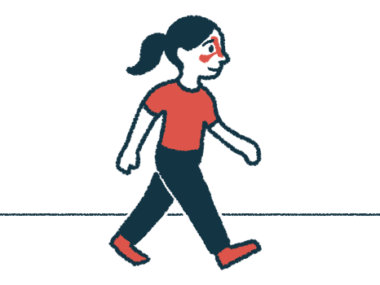Considering the what, how, and why of alternative treatments
Some might be worth a look, if used as complements to conventional care
Written by |

This column describes the author’s own experiences with some alternative therapies. Not everyone will have the same response to treatment. Consult your doctor before starting or stopping a therapy.
“Alternative medicine” is a bit of a buzz-term. Acupuncture, tai chi, herbs, and meditation, diverse as they are, have all been considered examples of alternative therapies. A lot of the dialogue around them concerns distinguishing between their features and those of more orthodox treatments, and then making a choice between them.
But do we have to choose? That’s something I’ve considered during my own medical journey and in observing others on their roads to wellness.
My past
Some people out there believe a person should use alternative, or “natural,” medicine instead of more orthodox treatment. I wholeheartedly disagree. I’m not sure if I’d be here without those conventional medications. I’ve believed in surgery as much as I’ve believed in mainstream therapies for my Cushing’s disease.
When I first became sick, I was willing to try anything. I visited every kind of doctor and tried every kind of pill. I felt as if I were dying, and I would’ve done anything to make myself better.
At that time, alternative medicine gave me false hope. It didn’t help me, at least not on its own.
My present
When any treatment beyond the mainstream is used in tangent with conventional medicine, we consider it “complementary.” This approach is the line of attack I find most beneficial in my ongoing treatment.
I don’t think most alternative medicine will harm your care as long as your doctors monitor and approve it. In my case, for example, I note every single herb, supplement, and vitamin I take so both my primary physician and my endocrinologist can give it their OK. To me, that’s a more holistic approach. I continue to take standard medication and trust my team while implementing the alternative treatments that fit into my lifestyle.
Currently, I use herbs, dietary supplements, yoga, meditation, and massage in a complementary fashion.
Yoga has kept my body active and helped me build strength in my arm and leg muscles. I’ve had more energy since I started doing the practice three times a week, but I’ve also found it calming. Taking the time to focus on my body allows me to be more in tune with its needs, and I’m grateful.
As for herbs and vitamins, I’m now taking milk thistle, fish oil, vitamin C, vitamin E, iron, L-glutamine, and N-acetyl cysteine (better known as NAC). I take these along with my doctor-prescribed medications: Mounjaro (tirzepatide), spironolactone (known by the brand names Aldactone and CaroSpir), and ketoconazole (often known as Nizoral, Xolegel, and Extina). This mix has helped my bloodwork tremendously and improved my liver as well as my fatigue issues.
My future
Research has shown that acupuncture may help with severe pain, including joint pain, back pain, arthritis, and headaches. While I find needles slightly terrifying, I next want to experiment with this alternative treatment. I have severe pain in my leg and back as well as recurring migraines. Finding ways to ease all of that would be amazing.
I’m also interested in learning tai chi, as it’s been shown to improve balance, reduce back and knee pain, and generally enhance a practitioner’s quality of life. It’s a slow and gentle movement, which I think bodes well for my knees and legs.
People with chronic illnesses are vulnerable, and some people who hawk forms of alternative medication take advantage of our fears. Using therapies beyond the standard in a complementary fashion is a safer way to expand your treatment without hurting yourself or ignoring internal issues that alternative medication might not be able to recognize. And as I note above, make sure your doctors approve of whatever you’re choosing to use.
What are your thoughts on using alternative treatments in complementary ways? Let me know in the comments below! You can also follow my journey on TikTok and YouTube.
Note: Cushing’s Disease News is strictly a news and information website about the disease. It does not provide medical advice, diagnosis, or treatment. This content is not intended to be a substitute for professional medical advice, diagnosis, or treatment. Always seek the advice of your physician or other qualified health provider with any questions you may have regarding a medical condition. Never disregard professional medical advice or delay in seeking it because of something you have read on this website. The opinions expressed in this column are not those of Cushing’s Disease News or its parent company, Bionews, and are intended to spark discussion about issues pertaining to Cushing’s.







Leave a comment
Fill in the required fields to post. Your email address will not be published.